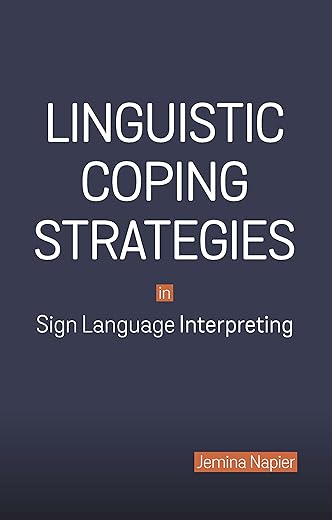Linguistic Coping Strategies in Sign Language Interpreting (Studies in Interpretation Book 14)
£45.60
The concept of strategic omissions is explored here as a tool that is consciously used by interpreters as a coping strategy. Instead of being a mistake, omitting part of the source language can actually be part of an active decision-making process that allows the interpreter to convey the correct meaning when faced with challenges. For the first time, Napier found that omission potential existed within every interpretation and, furthermore, she proposed a new taxonomy of five different conscious and unconscious omission types. Her findings also indicate that Auslan/English interpreters use both a free and literal interpretation approach, but that those who use a free approach occasionally switch to a literal approach as a linguistic coping strategy to provide access to English terminology. Both coping strategies help negotiate the demands of interpretation, whether it be lack of subject-matter expertise, dealing with dense material, or the context of the situation.
Napier also analyzes the interpreters’ reflections on their decision-making processes as well as the university students’ perceptions and preferences of their interpreters’ linguistic choices and styles. Linguistic Coping Strategies in Sign Language Interpreting is a foundational text in interpretation studies that can be applied to interpreting in different contexts and to interpreter training.
Read more
Additional information
| Publisher | 1st edition (31 Mar. 2016), Gallaudet University Press |
|---|---|
| Language | English |
| File size | 1770 KB |
| Text-to-Speech | Enabled |
| Screen Reader | Supported |
| Enhanced typesetting | Enabled |
| X-Ray | Not Enabled |
| Word Wise | Not Enabled |
| Sticky notes | On Kindle Scribe |
| Print length | 255 pages |
| Page numbers source ISBN | 1563686589 |










by Shopalcoholic
Amazing book to read and great understanding. High recommended.